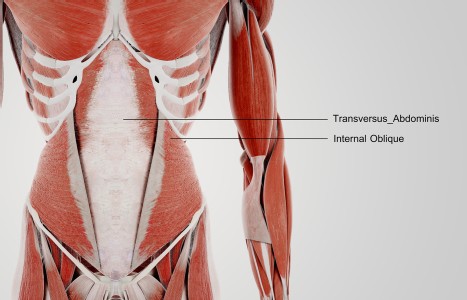TrA-2, my primary needle location, I needle 95% of the time and I think it works the best. You’ll know you have the right point location when you discover the muscle twitching when applying electric stimulation.
Mathematical Herbal Medicine
For many years, Chinese herbal medicine (CHM) could not be explained or understood from the Western medicine and pharmaceutical viewpoints and approaches. Because of this, Chinese herbal medicine has been labeled as unscientific, and regarded by some as a type of folk medicine.
This situation has generated much misunderstanding about CHM, and has seriously jeopardized and hindered its recognition as an independent form of professional medicine around the globe. This situation has not only damaged the Chinese medicine profession, but has also harmed the interests of patients and the public. It is also counterproductive to the advancement of medicine in general.
Is Chinese herbal medicine scientific? This is a fundamental question facing the entire Chinese medicine profession. It will decide the fate of Chinese medicine in general, and Chinese herbal medicine in particular. Therefore, it is of the utmost importance to the healthy growth, development, and future of Chinese medicine. If the question is not resolved, other issues on Chinese herbal medicine become groundless and meaningless. This article will attempt to address this question from mathematical and scientific viewpoints.
Systemic Differences Between Chinese Herbal Medicine and Western Medicine
In understanding and judging Chinese herbal medicine, most people take it for granted that Western medical methodologies and approaches can be applied directly to Chinese herbal medicine. The most commonly employed method of evaluating the efficacy and safety of Chinese herbal medicine is the pharmaceutical randomized, double-blind, controlled study method (RCT).
This approach, however, is inappropriate, inaccurate and incorrect. It is only an assumption that Western medicine's methods and standards such as the RCT and other pharmaceutical study methods can be applied to the Chinese herbal medical system. This assumption has not been proven, and is actually incorrect. There are no scientific grounds for judging Chinese herbal medicine by means of Western medicine's standards and approaches. The current trend of fitting Chinese herbal medicine into Western medicine's mathematical model is a wrong approach.1,2
In 2001, to address the above issue, comparative analyses and studies of the structures of Chinese herbal medicine versus the Western medical system were conducted.1 It was found that the structure of Chinese herbal medicine is quite different from the structure of Western medicine. Western medicine involves a single body, nonlinear system or a multi-body, linear system, whereas Chinese herbal medicine involves a multi-body, nonlinear system.
These differences between Chinese herbal medicine and Western medicine are so profound that they have set apart the two medicines to such an extent that most conventional concepts, viewpoints and conclusions in Western medicine have become inapplicable to Chinese herbal medicine.
The fact that Chinese herbal medicine has been regarded as non-scientific is because most people follow the conventional pathway of judging Chinese herbal medicine by means of Western medicine's standards and approaches. Based on the above differences, the author concludes that it is inappropriate to take it for granted to judge CHM by means of Western medicine's standards. As a result, it is inappropriate to conclude that CHM is non-scientific based simply on Western medicine's standards and criteria.
Fundamental Differences Between Chinese Herbal Medicine and Western Medicine
Based on the above system differences, it is necessary to further differentiate Chinese herbal medicine from Western medicine at more fundamental levels. Specifically, Chinese herbal medicine should be differentiated from Western medicine in terms of foundation, framework, structure, approach, principle, diagnosis, and treatment methodology.2
Foundational differences. Chinese herbal medicine was founded on fundamental Chinese philosophies, such as yin-yang theory, Five-Element theory, etc. These philosophies are an integral part of Chinese culture and history, and are quite different from Western medicine's philosophy. Therefore, the two medicines have been built on different foundations.
Differences in framework. The framework of Chinese herbal medicine is composed of various theories and methodologies, such as channel and collateral theory, zang xiang theory, Chinese medical etiological theory, Chinese medical pathogenetic theory, Chinese medical diagnostic methods, bian zheng lun zhi, etc. These are quite different from Western medicine.
Structural differences. In Western medicine, the burden of designing protocols and procedures rests upon the Western medicine profession. Therefore, Western medicine is a standardized medicine, with a standardized structure. In CHM, the burden of designing protocols and procedures in practicing Chinese herbal medicine rests upon doctors of Chinese medicine. Therefore, CHM is an individualized medicine, with an individualized structure.5
Differences in approach. Chinese herbal medicine employs a systematic approach in diagnosis and treatment. This is quite different from the analytical approach of Western medicine.
Differences in principle. The principle of the Chinese herbal medicine system is holistic; Western medicine has an allopathic principle.
Diagnostic differences. Chinese herbal medicine uses Chinese medicine's four diagnostic methods, which are quite different from Western medicine's diagnostic methods.
Treatment differences. Chinese herbal medicine employs the bian zheng lun zhi treatment methodology, which differs significantly from Western medicine's treatment methodology.
From the above discussions, one can see that Chinese herbal medicine is a unique medical system that is completely different from Western medicine at several fundamental levels. Based on these differences, it is reasonable to believe that Chinese herbal medicine follows its own mathematical rules and regularities, which are different from those of Western medicine.
A Call for New Mathematics
In some ways, the relationship between Chinese medicine and Western medicine is similar to the relationship between Chinese and English. To judge Chinese medicine by Western medicine's standard and approaches is akin to judging the correctness of the Chinese language using the standards of English grammar. This is quite simply inappropriate.
The efficacy and safety of Chinese medicine should be judged by Chinese medicine's standards and methodologies.2 CHM has its own rules and regularities, which are governed by special mathematical models different from those used in Western medicine.
Until today, however, there has been no mathematical tool for the Chinese herbal medicine system. The mathematics employed by Western medicine cannot provide accurate solutions for Chinese herbal medicine. It is inappropriate to apply Western medicine's mathematics, methods and approaches and use them to judge Chinese herbal medicine. The appropriate way is to find and develop special mathematical models to describe CHM's rules and regularities to direct more accurate, consistent and reproducible clinical outcomes.
Due to the lack of appropriate mathematical tools, advancements and new mathematic models for Chinese herbal medicine have been called upon.1 Furthermore, in order to promote theoretical studies and mathematical breakthroughs for the Chinese herbal medicine system, it was proposed to establish a "Department of Theoretical Herbal Medicine" within the FDA.3 These efforts marked the beginning of a new approach - the mathematical herbal medicine approach - to explicate the efficacy, safety and validity of Chinese herbal medicine.
Mathematical Herbal Medicine
Definition. Mathematical herbal medicine is defined as a new interdisciplinary field aimed at describing, elucidating and understanding the underlying processes and mechanisms of herbal medicine from mathematical approaches and viewpoints.
Composition. Mathematical herbal medicine will be quite complicated. It will involve not only Chinese medicine, but also mathematics, and other fields and sciences.4 Cooperation between medicine and other scientific fields will definitely help in understanding and clarifying the underlying processes and mechanisms of Chinese herbal medicine.
Goals. The goal of mathematical herbal medicine is to quantitatively elucidate, understand, and control the complex, multi-body, nonlinear Chinese herbal medical system in order to achieve more accurate, consistent and reproducible clinical outcomes in the practice of Chinese herbal medicine.4
Guidelines on the Establishment of Mathematical Herbal Medicine
Because Chinese herbal medicine is different from Western medicine on so many levels, the mathematics directing Chinese herbal medicine should be different from the mathematics that direct Western medicine. Therefore, it is necessary to "start from scratch" to develop mathematical herbal medicine. Mathematical herbal medicine should stay out of the framework and influences of Western medicine mathematics, and develop independently, following Chinese herbal medicine's rules and regularities.
Mathematics is important. However, it is only a tool. The new mathematic models should come from, and go back to, herbal medicine. Mathematics for mathematics' sake is useless in medicine.
Chinese herbal medicine, the world's earliest, most complete, systematic, and comprehensive herbal medicine system, should be taken as the standard in establishing mathematical herbal medicine. For this reason, Chinese herbal medicine's standards and methodologies should be the sources and criteria of any new mathematical tools developed in mathematical herbal medicine in the future.2,4
In summation, mathematical herbal medicine should be developed independently. It should respect, reflect, and describe CHM's rules, regularities, and underlying processes and mechanisms. This guideline should be carried out and implemented from the beginning of mathematical herbal medicine.
Characteristics of Mathematical Herbal Medicine
Western medicine has developed and grown in conjunction with contemporary mathematics and physics. For this reason, it has been greatly influenced by the analytical approaches of contemporary science. As a result, Western medicine has adopted the analytical mathematical model, and has become an analytical medicine.
Chinese herbal medicine, however, developed much earlier than the advent of contemporary mathematics and physics. Because of this, it has not been influenced by the analytical approach. Instead, CHM has taken a unique, holistic pathway and approach since the beginning of Chinese medicine, and is the world's earliest form of holistic medicine.
The concept of holism is the most important fundamental characteristic in Chinese medicine.6 It permeates all areas of Chinese herbal medicine, and directs every aspect in the practice of Chinese herbal medicine, from diagnosis to treatment, from prevention to rehabilitation, and so on.
As mentioned above, mathematical herbal medicine should respect, reflect, and describe Chinese herbal medicine's rules, regularities, and underlying processes and mechanisms. Therefore, the mathematics to be developed in mathematical herbal medicine should be holistic mathematics.
The holistic mathematics in mathematical herbal medicine will be completely independent of and different from the analytical mathematics employed in Western medicine. Therefore, all concepts, methods, premises, and conclusions commonly used in analytical mathematics should not be brought into holistic mathematics without rigorous scrutiny. The criteria for establishing holistic mathematics should be based on Chinese herbal medicine's standards and methodologies.2,4
Is Chinese Herbal Medicine Scientific?
Based on the above discussions, we can now address the original question: Is Chinese herbal medicine scientific? The answer is yes - definitely. Chinese herbal medicine is a science; it obeys all mathematical and physical laws. However, because it involves a more complicated, multi-body, nonlinear system, there is still no mathematical tool for it to be understood analytically. These difficulties are caused by the complexity of Chinese herbal medicine's structure. In other words, Chinese herbal medicine is a very rigorous science that is, in many aspects, beyond the capability of contemporary scientific theory and method to explain in precise terms.
For many years, the scientific and medical community evaluated and judged Chinese herbal medicine from Western medicine's viewpoints and approaches. This approach resulted in long-term misunderstandings about Chinese herbal medicine. Therefore, CHM has been mislabeled as being nonscientific, and has been regarded as folk medicine.
From the above discussions, we see that the problem is not that Chinese herbal medicine is nonscientific. The problem is that it is wrong to evaluate Chinese herbal medicine using Western medicine's standards and methodologies. In other words, the question is not whether Chinese herbal medicine is scientific. The question is, what are the appropriate tools (mathematics) to describe Chinese herbal medicine scientifically?
Therefore, the burden of the original question - is Chinese herbal medicine scientific? - has been shifted to the following question: What is the new holistic mathematical model that is capable of describing the Chinese herbal medicine system? Searching for the new holistic mathematics for Chinese herbal medicine has become the mission of the field of mathematical herbal medicine.
Conclusion
It is a fact that the underlying processes and mechanisms of Chinese herbal medicine cannot be elucidated by contemporary science. This article has addressed the original question - Is Chinese herbal medicine scientific? - and revealed that the above statement is not due to Chinese herbal medicine being nonscientific. Rather, it is because there still are no scientific tools (mathematics) and quantitative methods to describe and clarify Chinese herbal medicine.
From mathematical viewpoints, this article concludes that Chinese herbal medicine is scientific. New mathematics are needed to explain the underlying processes and mechanisms of Chinese herbal medicine. This leads to the necessity of establishing a new interdisciplinary field: mathematical herbal medicine.
With the establishment of mathematical herbal medicine and the advancement of new mathematics for multi-body, non-linear systems, Chinese herbal medicine's underlying processes and mechanisms will be understood and controlled quantitatively and more accurately. The scientific facets of Chinese herbal medicine will be revealed and demonstrated to the world.
References
- Xu B. Recommendation on Chinese Medicine in the United States of America to White House Commission on Complementary and Alternative Policy, December 2001. ACMA Publication, Dec. 2001. www.americanchinesemedicineassociation.org.
- Xu B. The Future of Chinese Herbal Medicine in the West I. ACMA Publication, Jan. 9, 2005. www.americanchinesemedicineassociation.org.
- Xu B. Letter to the Congress. ACMA Publication, Aug. 2002. www.americanchinesemedicineassociation.org.
- Xu B. The Future of Chinese Herbal Medicine in the West II. ACMA Publication, Jan. 15, 2005. www.americanchinesemedicineassociation.org.
- Xu B. Chinese herbal medicine and formulation. In: Yuan CS, Beiber EJ, Bauer BA (eds.) Textbook of Complementary and Alternative Medicine, 2nd ed. New York: The Parthenon Publishing Group, 2005.
- Xu B. Fundamental Characteristics of Chinese Medicine: Holism and Bian Zheng Lun Zhi. ACMA Publication, Feb. 2003. www.americanchinesemedicineassociation.org.


